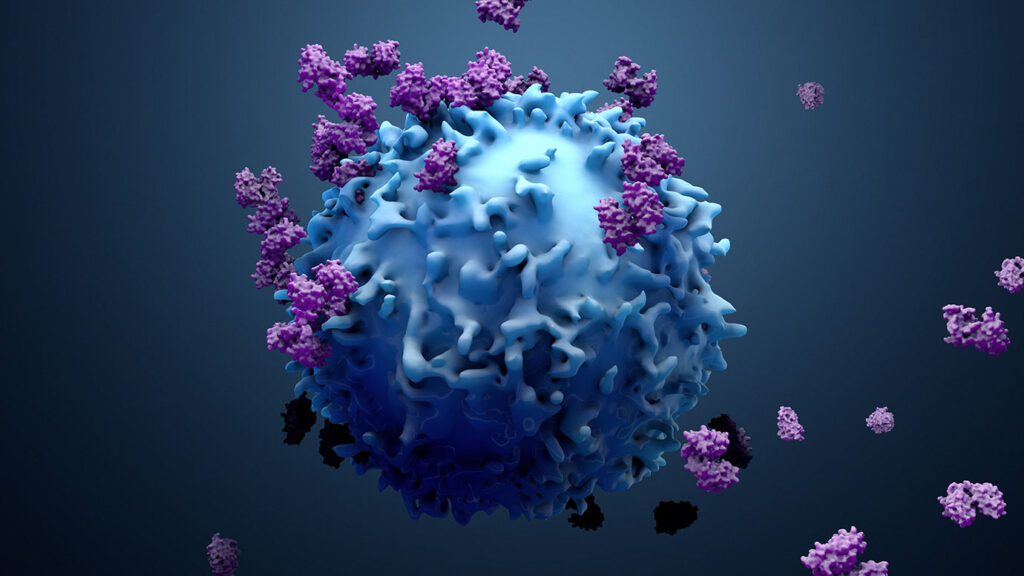Navigating Immunogenicity Challenges in Drug Development

In the realm of drug development, one significant challenge that researchers and pharmaceutical companies face is the potential for immunogenicity—a process in which the body’s immune system generates an immune response against therapeutic proteins or drugs. Immunogenicity can have profound implications for drug safety, efficacy, and patient outcomes. In this article, we’ll explore the complexities of immunogenicity in drug development, the factors that contribute to its occurrence, and strategies for navigating this challenge to ensure the development of safe and effective therapies.
Understanding Immunogenicity:
Immunogenicity refers to the ability of a substance, such as a therapeutic protein or drug, to provoke an immune response in the body. When a foreign substance is introduced into the body, the immune system may recognize it as a threat and mount an immune response, producing antibodies to neutralize or eliminate the substance. In the context of drug development, immunogenicity can occur in response to biologic therapies, including monoclonal antibodies, therapeutic proteins, and gene therapies, as well as traditional small molecule drugs.
Factors Contributing to Immunogenicity:
Several factors contribute to the immunogenicity of therapeutic proteins and drugs, including their molecular structure, route of administration, dosage regimen, and patient-related factors. The molecular structure of a therapeutic protein, including its size, complexity, and post-translational modifications, can influence its immunogenic potential. Additionally, the route of administration (e.g., intravenous, subcutaneous) and dosage regimen (e.g., frequency, dose) can impact the immune response. Patient-related factors, such as genetic predisposition, underlying diseases, and immune status, also play a role in determining individual susceptibility to immunogenicity.
Implications for Drug Safety and Efficacy:
Immunogenicity can have significant implications for drug safety and efficacy. In some cases, the immune response generated against a therapeutic protein or drug may lead to adverse events, including allergic reactions, infusion reactions, or autoimmune responses. Additionally, the development of anti-drug antibodies (ADAs) can neutralize the therapeutic effect of the drug, reducing its efficacy and potentially compromising treatment outcomes. In severe cases, immunogenicity may result in the development of immune-mediated diseases or treatment failure, necessitating the discontinuation of therapy.
Strategies for Managing Immunogenicity:
Managing immunogenicity is a complex and multifaceted challenge that requires careful consideration throughout the drug development process. Several strategies can be employed to minimize the risk of immunogenicity and mitigate its impact on drug safety and efficacy.
These include:
1. Rational Drug Design: Incorporating rational drug design principles to optimize the molecular structure of therapeutic proteins and drugs, thereby reducing their immunogenic potential.
2. Preclinical Assessment: Conducting comprehensive preclinical studies to evaluate the immunogenicity profile of candidate drugs, including in vitro assays and animal models, to predict potential immune responses in humans.
3. Clinical Monitoring: Implementing robust clinical monitoring protocols to assess the development of anti-drug antibodies (ADAs) and immune-related adverse events in patients receiving therapy.
4. Patient Stratification: Identifying patient populations that may be at higher risk for immunogenicity based on genetic, demographic, or clinical factors, and tailoring treatment strategies accordingly.
5. Immunomodulatory Interventions: Exploring the use of immunomodulatory interventions, such as co-administration of immunosuppressive agents or engineering strategies to induce immune tolerance, to mitigate the immune response and improve drug tolerance. Immunogenicity presents a complex and challenging obstacle in drug development, with the potential to impact drug safety, efficacy, and patient outcomes. By understanding the factors that contribute to immunogenicity and employing strategic approaches to manage and mitigate its impact, researchers and pharmaceutical companies can navigate this challenge more effectively and ensure the development of safe and effective therapies. Through ongoing research, collaboration, and innovation, the field of drug development continues to advance our understanding of immunogenicity and refine strategies for minimizing its risks, ultimately improving patient care and treatment outcomes.














































